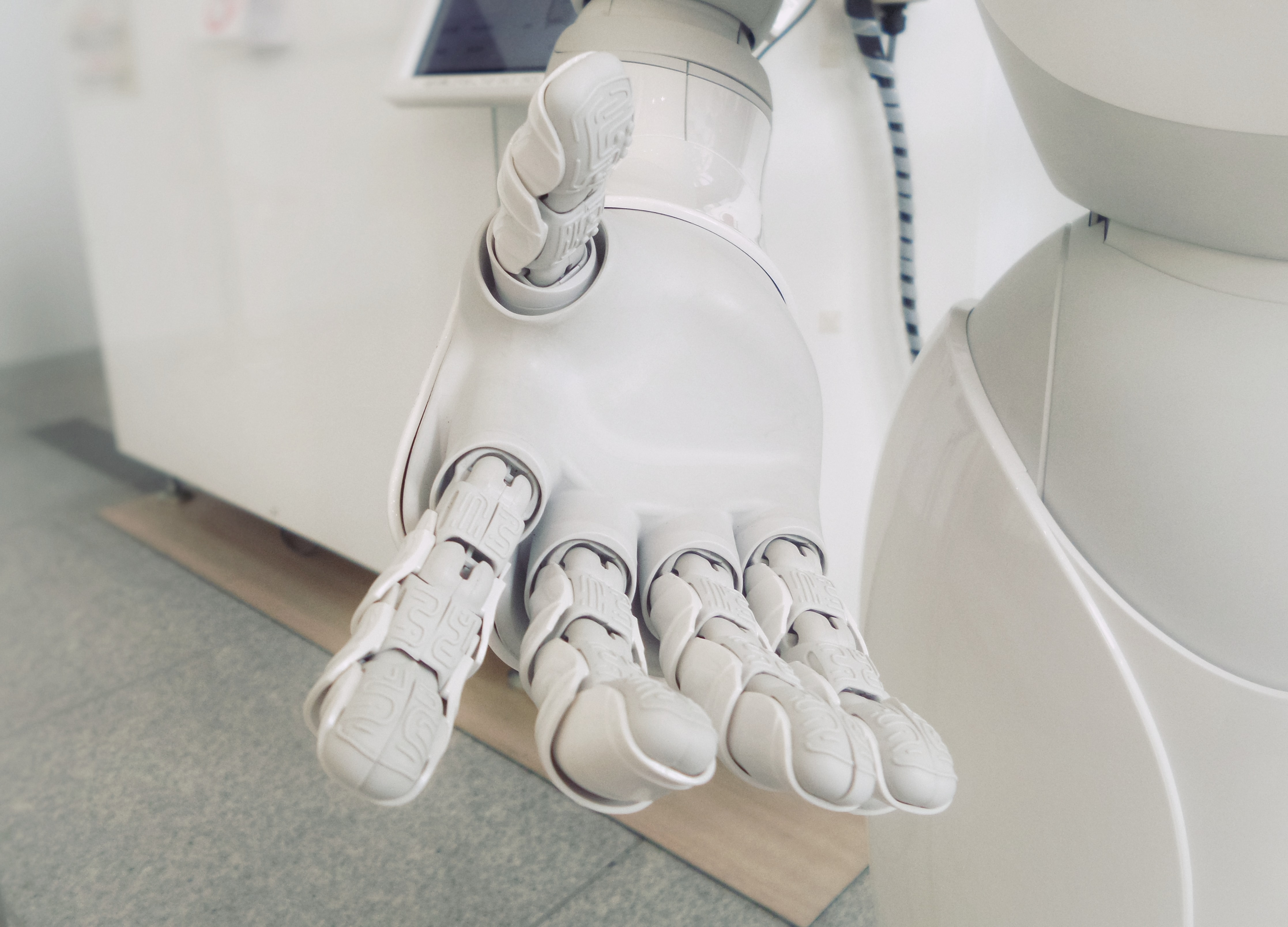Where do ethics come into the conversation with AI?

AI is everywhere. It's in our phones, our cars, our shopping experiences, and even our fridges. No longer a sci-fi concept, it’s now a real part of our everyday lives. And as it becomes more common, we face a question that's bigger than code or algorithms: What about ethics?
Creating AI isn’t just about writing lines of code. It’s about deciding the rules that these smart systems will follow. We're shaping these tools, and in the process, we're shaping our society. But who's making these rules, and what values are they based on?
Recently, some high-profile figures in the AI world have expressed concerns. Geoffrey Hinton, known as the "Godfather of AI" has quit his job at Google, and Elon Musk has called for a pause in AI development. It's clear we're at a crossroads, and we need to decide how to move forward in a way that’s fair and beneficial for all.
AI ethics is a thorny, but incredibly important, issue. It's about what kind of world we want to live in. And that's a conversation we all need to be a part of.
Understanding AI ethics
At its core, AI ethics is the philosophy of embedding moral integrity into AI development and use. It acts as a compass, guiding us to design AI systems that uphold human values and rights.
From speeding up our work to giving us personalized recommendations, AI is changing the way we live. However, it's not without potential pitfalls. AI's capabilities could be exploited to infringe on privacy, propagate bias or even displace jobs.
This ethics of AI is where technology and morality meet. Striking the right balance between innovation and regulation is tricky. Encouraging growth and harnessing the capabilities of AI is paramount, yet we must be vigilant about potential harm or misuse.
In essence, the philosophy of AI ethics is our ally in this tightrope walk. It helps us to make the most of AI's potential without losing sight of its risks. It's not a hurdle to AI development, but rather a tool to help us use AI in ways that are beneficial, fair, and respectful of our shared values.
Ethical concerns in AI development
Now, let's delve into some ethical issues that crop up when we talk about AI development.
First up is bias and discrimination. AI algorithms can become biased quite easily. They learn from data, and if the data is biased, the AI can mirror those biases, leading to discriminatory outcomes. This can hit marginalized communities hard, reinforcing existing inequalities. That’s why we need to ensure AI learns from representative samples and high-quality data that reflect the diversity of our world.
Next, we have privacy. AI often relies on collecting and analyzing massive amounts of data. This can raise concerns about misuse and overreach. To navigate this, we must strike a balance between the benefits of AI and respecting individuals' privacy rights.
Accountability and transparency also weigh heavily in AI ethics. When an AI system makes a mistake, who's responsible? And can we understand how the AI made its decision? We need clear answers to build trust in AI systems. That's why explainable AI models are crucial — they show us the 'why' behind AI decisions.
Lastly, fair pay and compensation should be a given in AI development. The quality of AI often depends on the quality of data it learns from. And high-quality data comes from workers who are fairly compensated, not exploited.
The impact of AI deployment on employment and industries
In the short term, AI is a powerful tool for improving efficiency and automating repetitive tasks. It can churn through data faster than any human, find patterns we might miss, and take care of mundane tasks. In turn, this allows us to focus on the more complex and creative aspects of our work.
But the long-term implications of AI deployment are more profound — and they warrant serious thought. Some experts predict that as AI grows more sophisticated, it could start outperforming humans in a wider range of tasks. According to PwC, up to 30% of jobs could be automated by the mid-2030s.
This potential shift raises questions about the future of employment. If AI can do our jobs, what happens to us? Some suggest Universal Basic Income (UBI) as a solution — a fixed income provided to everyone, regardless of their employment status. Advocates, including Andrew Yang, a former U.S. presidential candidate, and Mustafa Suleyman, a key contributor to the creation of Google AI Lab, argue that UBI could serve as a safety net, cushioning the impact of job displacement caused by advancements in AI technology.
So, as we harness the power of AI, we also need to prepare for its impacts. We need to consider not only how AI can boost productivity, but also how it might change the nature of work. Perhaps, rather than fearing the displacement of human workers, we should explore the possibilities of learning to work alongside AI, forming a harmonious collaboration that combines the unique strengths of both humans and intelligent machines.
Ensuring ethical AI user experiences
AI bias and the journey to eliminate it is a complex but critical endeavor. Here's how data scientists are tackling it:
Understanding the potential for AI bias is the first step. AI operates through learning from data, and if the data is biased, the AI's decision-making can be too. To counter this, data scientists must ensure the data used is as unbiased as possible and representative of real-life scenarios. Diversity within data teams also plays a role in reducing confirmation bias.
AI must also be transparent. Understanding how AI arrives at decisions can help us understand and correct bias. This forms part of the broader move toward 'explainable AI', making the AI's decision-making process understandable to humans.
Instituting standards can help prevent bias and ensure ethical AI deployment. For instance, the European Union's Artificial Intelligence Act is a crucial effort in proposing laws that regulate AI use. Building upon this precedent, ethical considerations and robust standards could also be beneficially integrated into other domains, such as the design of CV-screening tools.
Testing AI models before and after deployment is another method of mitigating bias. New companies dedicated to this purpose are emerging, indicating a trend towards more rigorous testing of AI models.
Lastly, synthetic data is seen as a potential solution to real-world data bias. Synthetic data sets are statistically representative versions of real-world data but don’t contain any personally identifiable information. However, this approach is not without challenges, as solving one bias might unintentionally introduce another.
The role of stakeholders in promoting AI ethics
Promoting AI ethics isn't a job for one — it's a shared responsibility across various stakeholders. Let's take a look at the roles each of them plays.
Governments can help shape AI ethics through laws and regulations. They can encourage ethical AI research and development, ensuring AI technologies align with human rights and values. International cooperation and standardization are also key. A case in point is Italy's recent move to ban unregulated AI systems, highlighting the need for AI governance.
Businesses have a crucial role too. They need to make sure they're building AI in a way that's fair and has a positive impact on society. One way to do this is by working with governments and universities to tackle any challenges AI might bring.
Academics help shape AI ethical practices. They conduct research on ethical AI frameworks and methodologies, ensuring we have robust tools for ethical AI development. It’s vital that different disciplines work together to understand AI’s impact, from computer science to philosophy and sociology. Academia is also responsible for training the next generation of AI professionals, instilling a strong sense of ethics in them.
Finally, the public — yes, that includes you — wields significant influence in promoting AI ethics. Increasing public awareness and understanding of AI ethics is vital. Advocacy for ethical AI policies and practices also helps push for higher ethical standards. The public can also participate in AI ethics discussions and decision-making, ensuring a diverse range of perspectives is heard.
Final thoughts
As we keep pushing AI tech forward, we need to keep our eyes open to ethics — making sure that AI is used to improve society instead of causing division. Prolific is a key ally on this mission. We're here to support ethical AI development by connecting AI developers with a carefully vetted pool of participants ready to offer rich, detailed, and unbiased data.
We stand by a minimum payment threshold, motivating participants to provide valuable responses, and therefore enhancing the quality of research. This commitment to fair pay and high-quality data aligns with our stance on ethics, fortifying the intrinsic link between fair pay, high-quality data, and ethical AI.
For a deeper dive into these ethical considerations, check out our eBook on AI Ethics. With Prolific, you're not just part of AI development — you're contributing to the advancement of ethical AI.
We can help power your AI model with ethical data that benefits everyone. Get started today.
Like this post? You'll love our monthly newsletter.
Get the latest insights and helpful resources—straight to your inbox.







